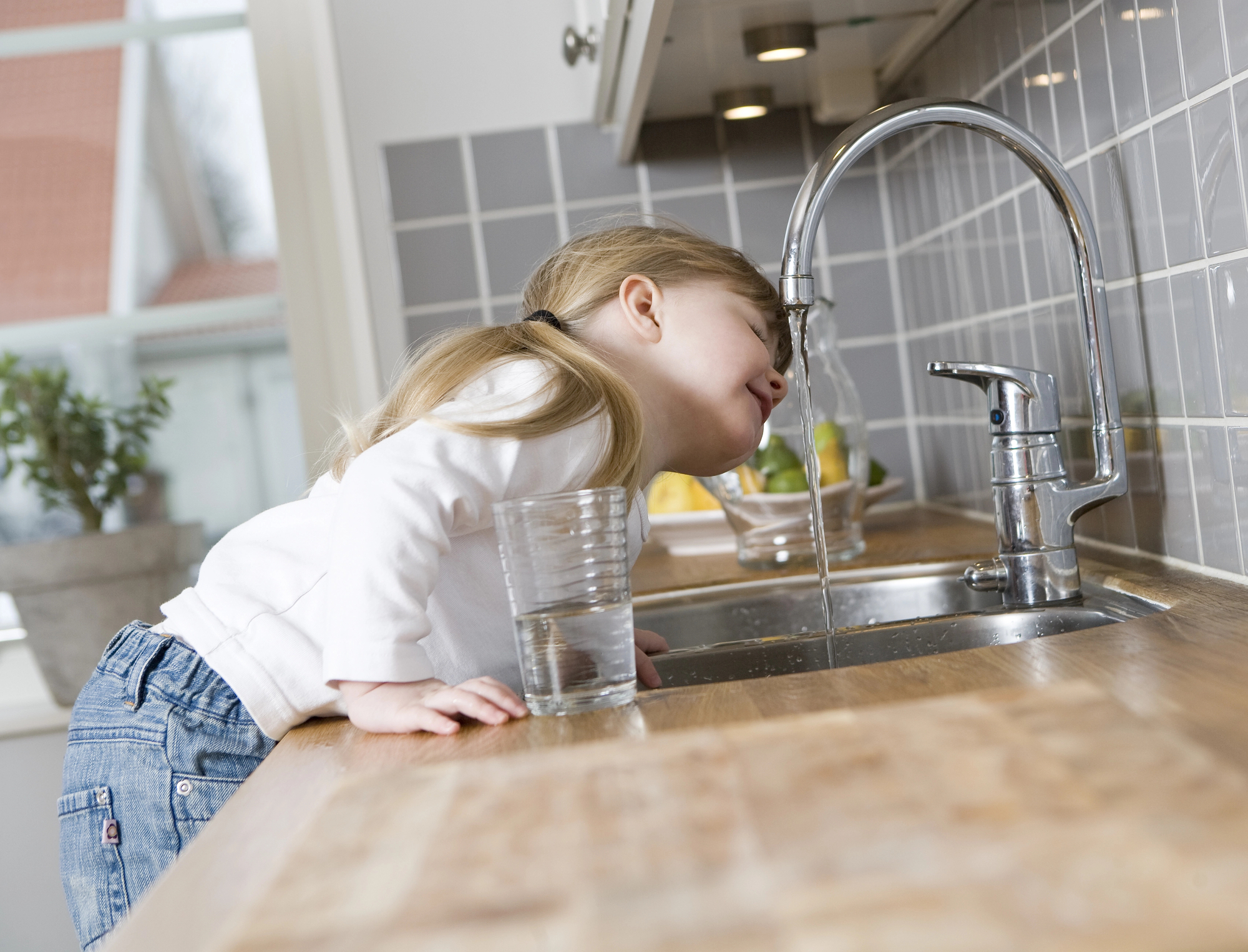How to Find Reputable Water Treatment Near Me

How to Find Reputable Water Treatment Near Me
What is Home Water Treatment?
Simply put, home water treatment is a system that filters the water supply and improves the quality of water in your home. Whole home filtration (or treatment) systems reduce and remove contaminants, which means you and your family will enjoy clearer and safer water.
What are the Benefits of a Whole Home Water Treatment System?
As a professional water treatment company, our perspective is simple: clean water is better water. Home water filtration removes natural and man-made contaminants, such as chlorine. A nice byproduct of removing contaminants is removing the drying effects, which means softer skin and hair, along with better-tasting coffee.
A few major benefits of home water treatment are:
- Healthier drinking water
- Better air quality
- Extended life of major appliances
- Low maintenance
- Eco-Friendly
- Zero wastewater
- Reduce chlorine
- Remove other contaminants (arsenic, manganese, uranium)
What are the common types of home water treatment systems?
While there are numerous examples of simple water treatment and filtration systems, it is important to know that there are two main types: point-of-use and point-of-entry. Ultimately, the right type of home water treatment depends on the contaminants in your water supply (and budget). As a result, when looking to add a home filtration system, then it is important to work with a trusted and reputable water treatment company near you that provides an honest recommendation based on testing your water.
Point-of-Use (POU) Home Water Treatment
POU systems treat water at a single tap or location. Generally, POU water treatment systems are designed to purify water for drinking and cooking in the home. For example, a combined water pitcher with a filter is a POU water system. While a simple water pitcher has a personal use case, other POU water filters include:
- Faucet-Mounted Filters: Small filters that are attached directly to specific faucets (typically the kitchen faucet). These work by filtering contaminants as water flows, but have a limited capacity.
- Countertop Filters: Compact filters that connect to the faucet via a diverter valve (and sit on the counter). Typically, these work by utilizing carbon filters, which remove some contaminants, but also generally improve taste.
- Under-Sink filters: Installed under the kitchen sink, this filter works to purify water through the dedicated faucet. These work with various filters, such as carbon, reverse osmosis, or possibly UV light and offer more capacity than faucet-mounted filters.
- Reverse osmosis (RO) Systems: In a RO system, water flows from the concentrated side (with contaminants) through the RO membrane to a less concentrated side (with contaminants removed). The end result is clean water (called permeate).
Point-of-Entry (POE) or Whole Home Water Treatment System
POE systems filter all incoming water into the home, which means they treat the entire home and not a single faucet. Also known as whole home water treatment or filtration, these systems offer a larger capacity than POU systems. Generally, this larger capacity makes whole home filtration much more convenient. Some common POE systems include:
- Sediment Filters: These filters generally utilize a depth cartridge (or mesh screen) to trap contaminants and remove particulate matter like dirt, rust, and sediment from the water supply.
- Carbon Filters: These filters utilize granular activated carbon to reduce chlorine, chloramine, pesticides, herbicides, and organic contaminants that cause bad tastes and odors.
- Water Softeners: Water softeners utilize ion exchange resins to remove calcium and magnesium minerals that cause hard water issues like limescale buildup.
- pH Neutralizers: pH neutralizers raise the pH of acidic water to make it less corrosive which may extend the lifespan of home plumbing infrastructure, along with appliances, and help prevent leaks.
- Iron Filters: Iron filters are predominately utilized in homes with iron in the water supply and generally use air injection or oxidizing media to convert dissolved iron to particle form for removal.
What maintenance is required for whole home water treatment and filtration systems?
Like your car and HVAC system, whole home water treatment and filtration requires some preventative maintenance to ensure it is running smoothly. In addition, routine inspections and maintenance will increase its longevity. So, working with a reputable water treatment company near you will help you save in the long run as your home water filtration system operates smoothly. While some routine maintenance tasks appear simple, the expertise of a professional water technician is required for the more advanced inspections. It takes years of practice and understanding to spot a potential issue and address it in advance of a larger problem. To help, the following are the key aspects of a home water treatment maintenance check.
- Filter Replacements: The time to replace various filters changes based on the water filtration device. For sediment filters, replace them every 3-6 months to remove particles that can clog other filters. For carbon filters, replace them annually to maintain effective removal of chlorine, odors, and chemicals. Finally, for RO membranes, replace them every 2-3 years and clean them semi-annually.
- System Inspections: Work with a qualified water technician in your area to conduct an annual inspection that thoroughly evaluates the system and looks for any warning signs, red flags or other issues. Additionally, perform visual inspections every 2-3 years to check for leaks, damage, and proper operation of components like valves, gauges, and controllers.
- Backwashing/Flushing: Backwash sediment filters periodically to remove trapped particles. Plus, flush the entire system occasionally to clear out built-up sediment and debris.
- Control Checks: Inspect and calibrate the control valves, pressure gauges, and electronic controllers to ensure accurate readings and settings.
- Water Softener Maintenance: It is a best practice to replenish the salt/brine for ion exchange resin regeneration and perform a brine study” to check salt levels and regeneration settings.
In addition to these high-level maintenance tasks, it is recommended to follow the manufacturer’s guidelines as well. This step is crucial for whole home water systems to continue providing clean, filtered water throughout the home and prevent issues like clogs, leaks, and premature failure. While these routine maintenance items seem simple, it is important to maintain a relationship with a local water filtration company. For example, if you take the DIY approach to changing filters, then you may spot something alarming and want a company that knows your system and home.
What are the signs that your system needs maintenance?
While routine maintenance is recommended, particularly for homes that rely on well water, there are warning signs that something is wrong with your water treatment system. If you notice any of the following, then consider contacting a local water treatment company.
- If you notice a drop in water pressure throughout your home, it could indicate that the filters are clogged and need to be replaced because clogged filters restrict water flow.
- If you start seeing sediment, particles, or discoloration in the water from your taps, it means the filters are no longer effectively removing contaminants and likely need to be changed.
- If you detect foul tastes or smells, like chlorine, rotten eggs, or mustiness in your water, that likely means the filters are saturated.
- If your skin and hair feel excessively dry after showering, it could mean the filters need changing to restore chlorine removal.
- If you notice hard water deposits or scale buildup on fixtures, dishes, or appliances, it suggests the water softener needs servicing or replacement media.
- If you have to replace filters more frequently than expected based on their rated capacity, it could indicate issues like excessive sediment requiring more frequent maintenance.
For homes with well water, then finding a company that performs well water maintenance and home filtration maintenance helps ensure the same quality team inspects your home.
How to find a water treatment company near you?
Similar to searching for any home services company or water company, such as well service companies or well pump service, the search typically starts online or with your network. From there, you want to find a company that aligns with your needs. To help, the following questions are important to ask.
- Is your home in their service area?
- Do they service your specific water filtration system or device?
- Do they offer emergency services?
- Are they properly licensed and insured?
- What is their overall level of experience?
Aqua Pump Co. is committed to caring for you and your loved ones by providing essential services for your water, including whole home water treatment and filtration systems. For an understanding of your water quality, contact us to speak with a representative and learn about our free in-office water testing. Once we understand the potential concerns in your water, then we can recommend a personal home water filtration system that fits your needs.

